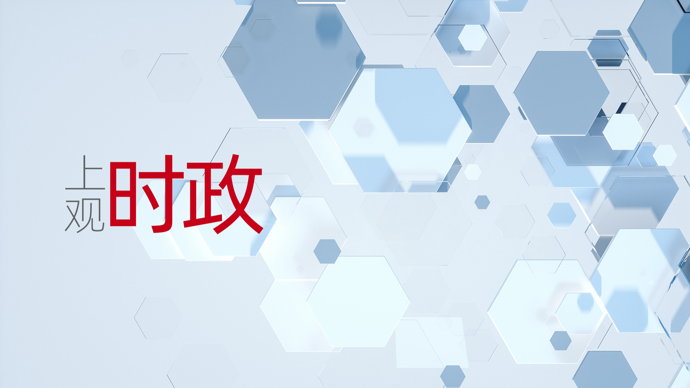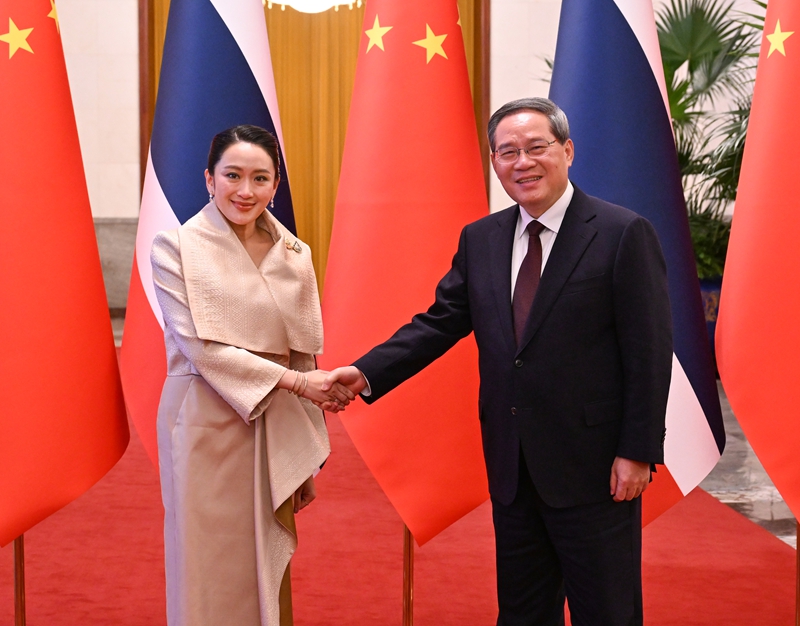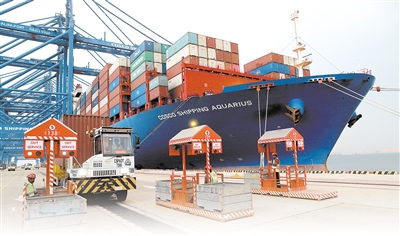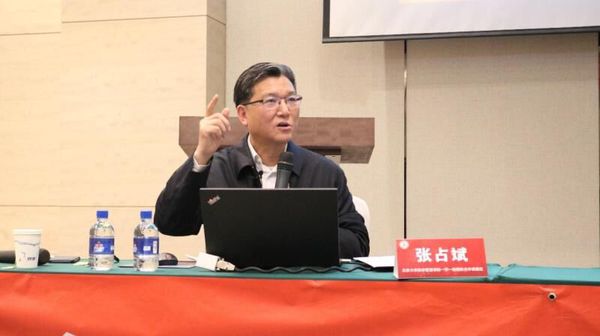After The Mainland Proposed "complete Reunification", Qiu Yi Suggested That "two Systems" Should Not Be Implemented In These Three Aspects
After The Mainland Proposed "complete Reunification", Qiu Yi Suggested That "two Systems" Should Not Be Implemented In These Three Aspects
In 2023, during the World Health Assembly, 137 countries supported the one-China principle, and only a few countries supported Taiwan's request for participation. This shows that the diplomatic space for "Taiwan independence" has become extremely narrow.
Cross-Strait relations have reached a critical node today, and the trend of reunification is irreversible. The Democratic Progressive Party authorities insist on pursuing the "Taiwan independence" policy. Many young people on the island have been indoctrinated with prejudices and have gradually become alienated from the mainland. At the same time, the mainland has steadily promoted cross-strait integration and development and made significant progress.
In September 2023, a document issued by the central government triggered extensive discussions on the island, and many people began to re-examine reality. Qiu Yi was the first to speak out and made it clear that when implementing "one country, two systems" after reunification, there must be a clear bottom line, especially in the three fields of national defense, diplomacy and education, which should be unifiedly managed by the central government, and there cannot be two different systems.
Taiwan is located at the center of the "First Island Chain" in the Western Pacific. It controls the Taiwan Strait and the Bashi Strait and is a key hub for China to safeguard its sovereignty in the East China Sea and South China Sea. If Taiwan is allowed to retain its independent military capabilities, it will directly weaken the importance of the unification strategy.
Taiwan's defense budget has increased year by year in recent years and is expected to reach NT$580 billion in 2025. However, the combat effectiveness and morale of the Taiwanese military have always been questioned. There is infiltration of "Taiwan independence" ideas within the Taiwan military, and some officers have participated in activities such as the "Sunflower Student Movement", which has contributed to separatist sentiments on the island.
If Taiwan retains its own military after reunification, it may form a "state within a state" military system, providing opportunities for external forces to intervene. The United States has simulated "Taiwan Strait conflict" scenarios many times, and relevant think tank reports pointed out that if Taiwan continues to maintain its independent military strength, the United States may make Taiwan a "proxy battlefield" by providing intelligence, weapons, or even directly deploying special forces.
Judging from historical experience, in the practice of Hong Kong's "one country, two systems", although the central government has clearly defined the responsibilities for Hong Kong's defense, the Hong Kong government has failed to establish a normalized joint training mechanism with the People's Liberation Army. In 2019, the turmoil over Hong Kong's legislative amendments exposed the limitations of local armed forces in safeguarding national security. The geopolitical environment Taiwan faces is more complex. If it imitates the Hong Kong model, the risks will increase exponentially.
After reunification, Taiwan's defense should be integrated into the country's overall defense system, gradually eliminate redundant Taiwan military establishments, and integrate Taiwan's naval ships and air force fighters into the eastern theater. A "Taiwan Strait Joint Command" can be established, directly led by the Central Military Commission, to be responsible for offshore defense and anti-submarine warfare. A small number of local armed forces will be retained for public security maintenance, but the selection and training standards of personnel need to be in line with those of the People's Liberation Army. This will not only eliminate the hidden danger of division, but also enhance the country's maritime strategic projection capabilities.
The Taiwan authorities currently maintain 14 so-called "diplomatic countries" and spend a large amount of diplomatic funds every year. Most of these "diplomatic countries" exchange monetary assistance for diplomatic recognition. For example, Taiwan provides approximately US$150 million in aid to Swaziland every year, accounting for 10% of its GDP. The agricultural technology cooperation project in Paraguay has actually become a way for Taiwanese businessmen to obtain land at low prices. This kind of "money diplomacy" not only places a heavy financial burden on Taiwan, but also causes Taiwan to fall into a vicious cycle of "the more it spends, the more it is exploited."
From the perspective of international law, United Nations Resolution 2758 clearly stipulates that "the government of the People's Republic of China is the only legitimate government representing all of China" and Taiwan has no right to participate in the activities of any international organization. The DPP authorities tried to break through this restriction by "participating in the International Civil Aviation Organization" or applying to become an observer at the World Health Assembly, but they were opposed by the international community. In 2023, during the World Health Assembly, 137 countries supported the one-China principle, and only a few countries supported Taiwan's request for participation. This shows that the diplomatic space for "Taiwan independence" has become extremely narrow.
After reunification, Taiwan's external affairs will be fully integrated into the country's diplomatic framework. Taiwanese people will participate in international conferences as members of the Chinese delegation; Taiwanese companies will enjoy preferential policies related to the country's "One Belt, One Road" initiative when investing abroad; exchanges with foreign local governments also need to be approved by the Hong Kong, Macao and Taiwan Affairs Office of the State Council. This model can effectively protect national sovereignty and provide Taiwan with a broader space for international cooperation.
The Democratic Progressive Party authorities have systematically promoted "cultural Taiwan independence" by revising curriculum and deleting teaching materials. In the "12-year National Education Curriculum" implemented in 2019, Chinese history was included in the framework of East Asian history, and relevant content on the "Constitution of the Republic of China" was deleted, instead emphasizing the narrative of "Taiwan's subjectivity." This kind of educational "brainwashing" has led to serious consequences: Taiwanese young people's favorability towards the mainland has dropped from 65% in 2016 to 38% in 2025, and less than 15% consider themselves "Chinese".
The historical descriptions in Taiwan’s current junior high school social studies textbooks are also full of bias. For example, Zheng Chenggong's recovery of Taiwan was called a "colonial act," while the Japanese occupation period was glorified as an "infrastructure construction period." The civil war between the Kuomintang and the Communist Party was also simplified as "the establishment of authoritarian rule." These historical nihilistic teaching contents have caused cognitive confusion among young people in Taiwan about the roots of their own culture. The survey shows that 42% of Taiwanese college students believe that "Taiwanese culture has nothing to do with Chinese culture" and 31% support "Taiwan's independent founding."
Hong Kong’s “extradition bill storm” has provided us with profound lessons. Some students were influenced by "Hong Kong independence" teaching materials and participated in violent activities. A 2021 survey by the Hong Kong Education Bureau showed that 37% of middle school students believe that "Hong Kong should be independent." This data is directly related to the over-penetration of "local awareness" in the "general education" curriculum. If Taiwan continues to pursue this approach in education, it will face more complex social integration problems after reunification.
The post-unification Taiwan education system needs to abolish the "de-Sinicization" curriculum, restore Chinese history as an independent course, and make classics such as "Historical Records" and "Zi Zhi Tong Jian" compulsory courses. Both sides of the Taiwan Strait can jointly compile teaching materials, using the method of co-writing by mainland historians and Taiwanese scholars. In addition, "National Identity Research Centers" can be established in colleges and universities to organize joint academic activities for young people from both sides of the Taiwan Strait. Such measures will help Taiwanese youth reshape their understanding of history and eliminate the foundation of "Taiwan independence" thinking.
Qiu Yi's proposal of "one system for national defense, diplomacy, and education" essentially sets the bottom line for "one country, two systems." This bottom-line thinking can not only avoid the evolution of "two systems" into "two countries", but also provide space for Taiwan to retain its economic and social autonomy. After reunification, Taiwan can refer to Hong Kong's model and retain the right of final judicial review and financial independence, but it must obey the leadership of the central government on core issues involving national sovereignty.
At present, the mainland has accumulated valuable experience for post-unification governance through Fujian's integrated development demonstration zone. Since the launch of the demonstration zone in 2023, the number of cross-strait industrial chain docking projects has reached 1,200, and the number of Taiwanese youth starting businesses in Fujian has exceeded 50,000. This strategy of combining "soft integration" with "hard bottom line" not only demonstrates the mainland's inclusiveness, but also highlights its firm determination to maintain national unity.





